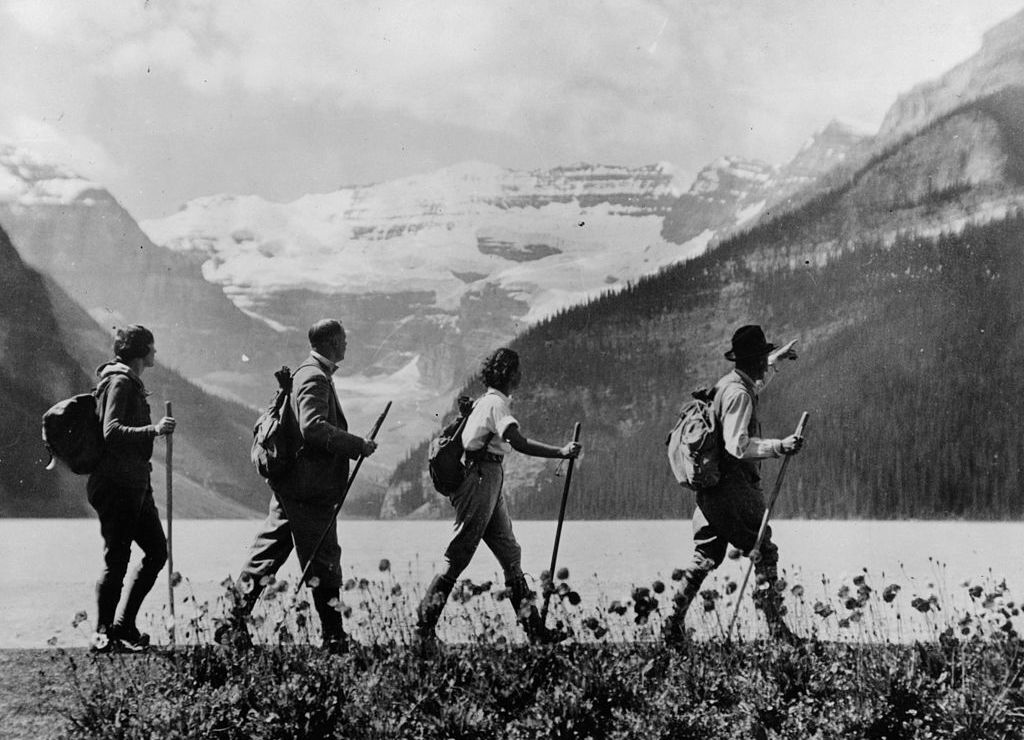We had almost wrapped up a punishing day of elevation gain in Washington's North Cascades when my group began to peel apart on the trail, reflecting the varying degrees to which our legs felt like cylinders of canned cranberry sauce. I was somewhere in the middle, alone, and loving it. After I had spent 30 idyllic minutes eating fistfuls of wild blueberries and uncovering mycological wonders, nature must have decided I'd basked in enough of its bounty, because it sent me sailing off a little ridge, into a rocky washout, quite hard, upon my ass.
The following experience would teach me two lessons:
- If you are injected with 20-30 tiny splinters in your hand after slipping and falling into some bramble, it may help to let the initial rawness to heal, and for your body to begin ejecting the offending objects, before you dive in with the tweezers. This can in fact be an enjoyable pastime while watching low-grade television.
- If you call for help in the wilderness, all of humankind may ignore you.
My day pack absorbed some of the blow, but I was rattled. I got up, made it a little farther and fell forward, skinning both shins and bracing myself on a bed of thorns. In a disoriented state, I staggered downhill to find some flatter ground and regain my bearings. Some mix of initial searing pain, the setting sun, and crushing aloneness shook me up: I called out for help a few times. That was while I feared my injuries were worse than they actually were—gory shins, bruised tush, pincushion palms—and I wanted another set of eyes to ensure I didn't wreck myself even more comprehensively over the last stretch of the trail. I couldn't have been more than 80 feet off the actual trail, which was decently trafficked.
Nobody came. After assessing the damages, refueling with the remainder of my granola bar and some water, and reorienting myself, I hiked back up onto the trail, and waited for company. In time I was joined by a pair of excellent dogs and their two obliging owners who were happy to ferry me back to the trailhead and talk me back into calmness, which was nice of them, given the general weirdness of being accosted in a forest by a rambling and slightly bloody guy during a pandemic.
Less heartening was learning what happened at the trailhead, where my friends had been waiting, asking other hikers if they'd seen me. Six or seven hikers came in and said they hadn't seen me. But they confessed that they had heard someone calling for help. One, out of guilt, offered to run back and search. Another guy had trail-run the entire ascent and descent, and had to clock in on his watch before turning around to see what all the hubbub was about. He admitted that he had heard the calls, too. My friend asked him how his time was, and he told him. Frankly if you're crushing 4,000+ feet of elevation and strenuous rock scrambles with terrible footing in 4.5 hours, you deserve to ignore my cries for help; that's deeply cool. But the rest of you misanthropes are still on the hook.
While I would hesitate to turn this anecdote into a definitive case of the bystander effect, this was not exactly a life-affirming moment. The social fabric was looking like the heel of my sock by the end of that hike. Despite the regular refrains, the question seemed fair: Do we even live in a society?
It's strange to even have to articulate this, but if someone calls for help, help them. The woods can flip from majestic to hallucinatory in an instant. I wasn't disoriented for long, but it was long enough to feel the first fingers of panic in my chest. This description by Michael Bond, who has written From Here to There, a book about the psychology of getting lost, now feels familiar: "Lost is a cognitive state. Your internal map has become detached from the external world, and nothing in your spatial memory matches what you see. But at its core, it is an emotional state. It delivers a psychic double whammy: Not only are you stricken with fear, you also lose your ability to reason." If I had seen another person, or even heard another person call back, it would have helped to dissipate that mental fog.
In 2019, SmokyMountains.com analyzed over 100 reports on lost hikers in the U.S. and Canada and found that 41 percent wandered off trail, 16 percent fell off the trail, and 8 percent were separated from the group. Demonstrating true mastery of the forest, I managed to do a little bit of all three, not badly enough to spend a night in a hollowed-out tree trunk, but just badly enough to realize it could get bleak out there in the creeping dark, with only the contents of a day pack. And badly enough to know that the next time someone calls out in a moment of panic, I'm going to at least figure out what's going on, instead of completing my lovely autumnal hike as if nothing at all has happened.






